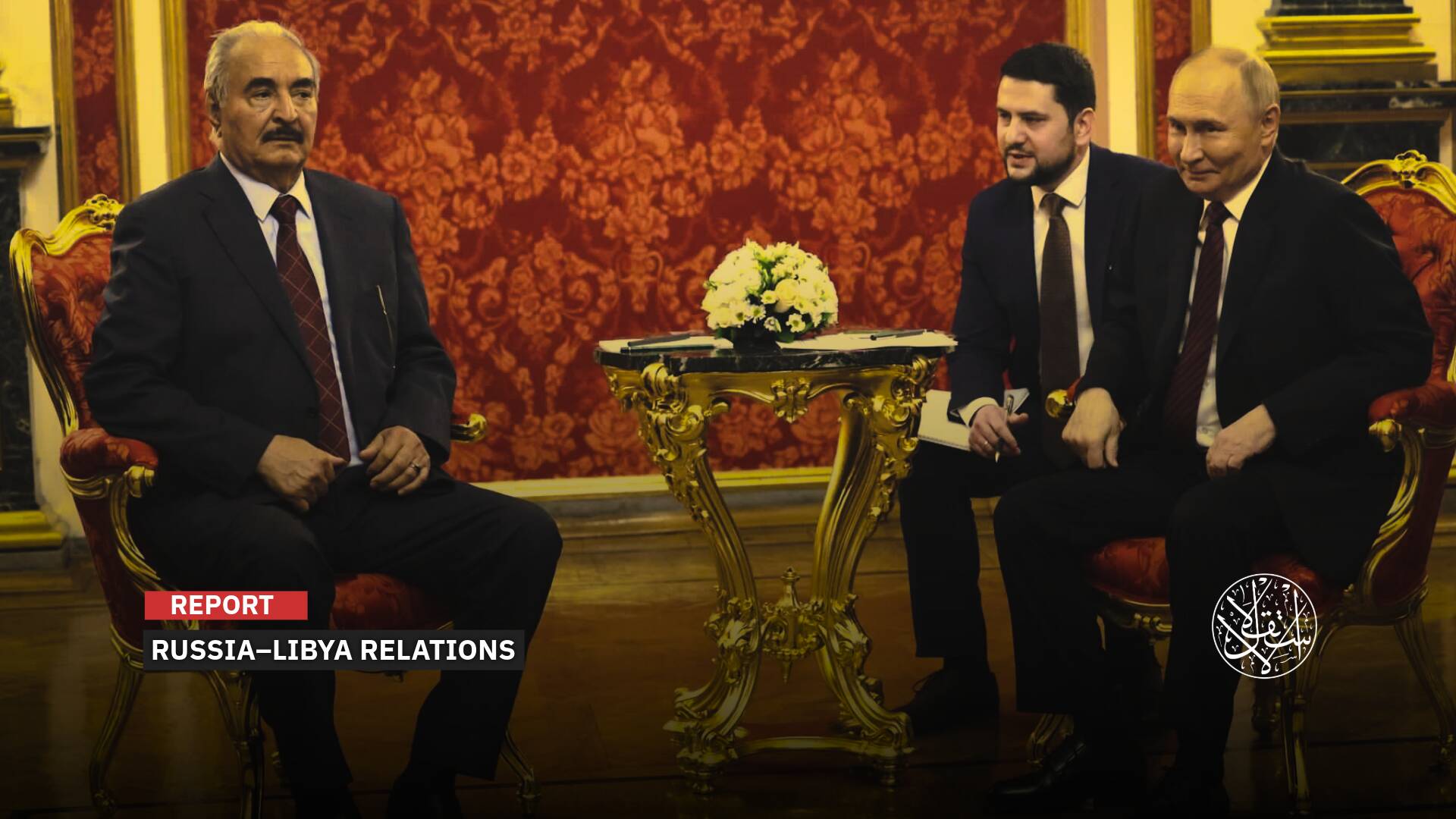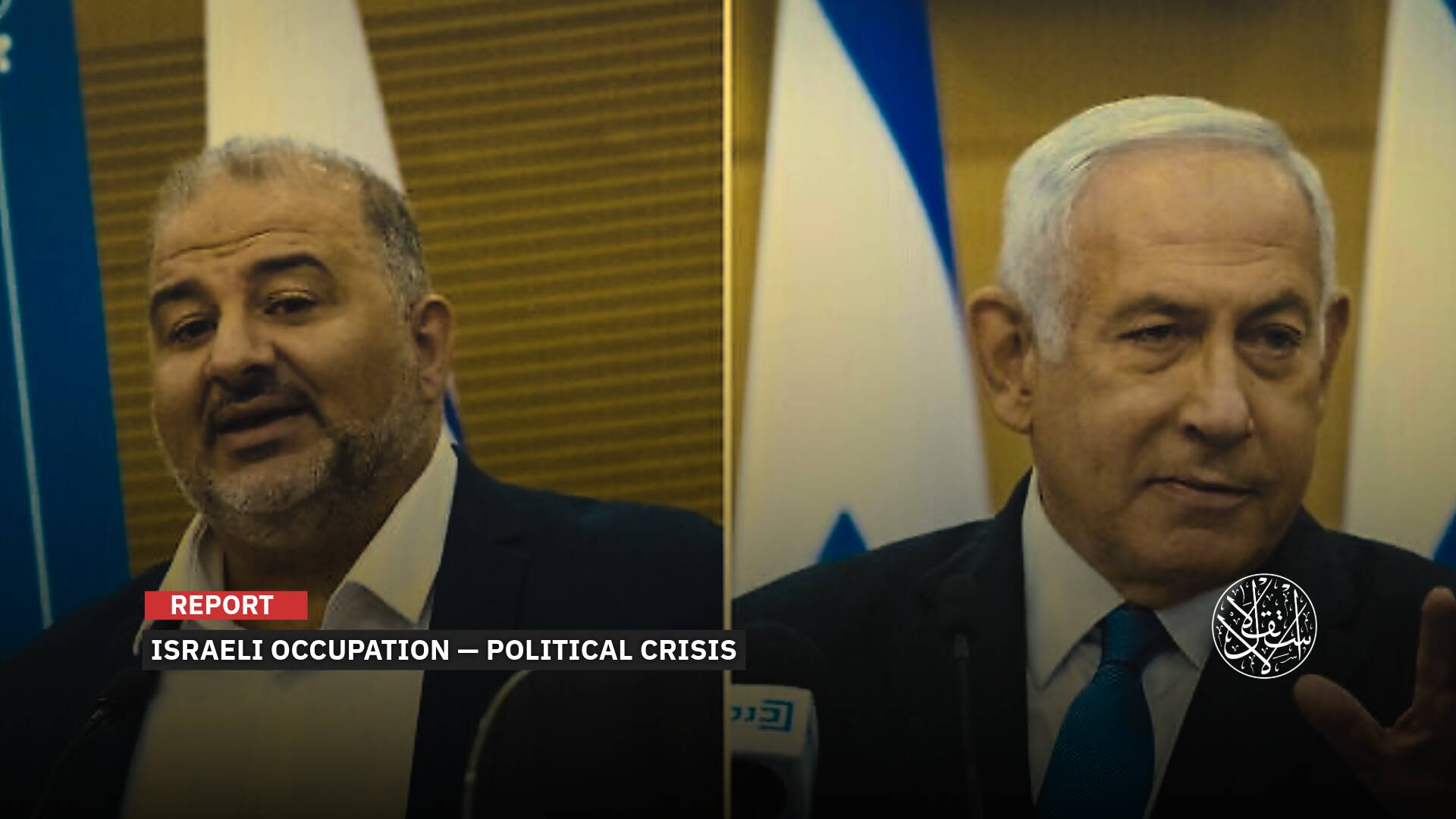Politicians and Spies: Why Is the Dispute Escalating Between Mossad and the Israeli Foreign Ministry?

Israeli intelligence reports have recently begun to speak of growing rifts between the head of the Israeli intelligence agency Mossad and government institutions, particularly the Ministry of Foreign Affairs.
This is due to differences in a range of foreign affairs issues in which both sides are engaged, most notably normalization with Arab countries such as Saudi Arabia and Libya.
This is in addition to anger and resentment towards the extreme right-wing government of Benjamin Netanyahu in various domestic policies, including legislative amendments that many Israeli circles view as a “coup against democracy.”
These circumstances raise questions about the nature of cooperation between these institutions and the influence of Mossad on Israeli politicians.
Cohen and el-Mangoush Leak
On September 4, 2023, Intelligence Online highlighted in a report a sharp dispute between Mossad and the Israeli Ministry of Foreign Affairs.
The magazine mentioned that Mossad had entered into a severe dispute with the Israeli Ministry of Foreign Affairs over the leakage of a secret meeting between Foreign Minister Eli Cohen and his Libyan counterpart Najla el-Mangoush to the media.
On August 27, 2023, Israeli Foreign Minister Eli Cohen leaked information to Israeli media about his meeting a week earlier in Rome with his Libyan counterpart Najla el-Mangoush.
This led to a political uproar within “Israel” due to its repercussions, including the dismissal of the Libyan minister and an increase in the lack of trust in “Tel Aviv” officials.
This situation escalated the battle between Israeli diplomatic authorities and Mossad.
Mossad officials are angered because the head of Israeli diplomacy, represented by the Foreign Minister, decided to announce this visit without coordinating with the intelligence agency.
Especially since, due to these embarrassing leaks, the Libyan minister was removed from office and was forced to leave her country.
The French magazine mentioned that it was planned to announce the meeting between the two ministers, but at a time that had been previously agreed upon.
In addition to the public outcry in both Libya and “Israel,” the publication of this information shortly after the agreement between the two parties damages Mossad’s relations with its Libyan counterparts.
This was revealed by the official Hebrew Kan channel when it stated: “Now there is severe tension and mutual accusations between Mossad and the Israeli Foreign Ministry regarding this issue and in everything related to Israeli sensitive relationship with countries with which it does not have diplomatic relations.”
This was one of several blunders in this file. In 2018, it was revealed that there were contacts between Israeli intelligence agencies and the Libyan coup general, Khalifa Haftar, mediated by Egypt and businessmen from the small Jewish community in Libya.
This contributed to weakening Haftar’s position, at least on a popular level. However, if it had been solely in the hands of the intelligence agency, “Tel Aviv” would have remained silent to protect its intelligence relationships, according to the French magazine.

Negotiations at Risk
Libya is not the only cause of the escalating disputes, as the Israeli Ministry of Foreign Affairs, led by former intelligence minister Eli Cohen, has its own agenda.
This includes pushing forward with diplomatic normalization efforts with regional countries, especially Saudi Arabia.
On April 25, 2023, the Hebrew website Walla reported that several former Mossad officers had warned about the dangers of disclosing detailed information regarding ongoing talks between the Saudi and Israeli regimes.
It was added that news had emerged about continuous meetings between Saudi and Israeli officials, along with the conditions and foundations of future cooperation and the shape of normalization if it were to occur.
This angered high-ranking Mossad officers, and current Israeli officials are equally displeased because the negotiations are now at risk.
Judicial Amendments
On the domestic front in “Israel,” there are fundamental disagreements between Mossad and Prime Minister Benjamin Netanyahu’s government, formed by the extreme right-wing nationalist coalition.
On August 1, 2023, Reuters revealed that resentment over the Israeli Occupation judicial amendments had penetrated the halls of Mossad. On July 24, 2023, Netanyahu’s government approved the first stage of legislation that curbs the powers of the Supreme Court to overturn government decisions it deems “unreasonable.”
This happened despite months of ongoing protests by hundreds of thousands of Israelis, and it reached the point where Mossad agents and officers participated in these protests, an action permitted for them.
Reuters reported that some Mossad officers, along with high-ranking reserve officers in elite special forces units and fighter pilots, all threatened not to respond to service calls.
The dispute even extended to senior former members of Mossad and leaders of various units and personnel within the sensitive agency.

Early Retirement
Former head of the Israeli Mossad, Tamir Pardo, had sharp criticisms for the government in an interview with the official Israeli broadcaster.
He stated that Netanyahu dismantled the Israeli army and the Mossad, and “Israel” has become a nation divided into two.
Pardo revealed that concerns were beginning to affect morale within the Mossad to the extent that some senior officers were considering early retirement despite serving for a long time within the highly secretive agency.
He then spoke about the dangers of the current government composition, saying that extremists here want a “Gog and Magog.”
He also said that every day that passes brings Israelis closer to the end of the Zionist dream, pointing out that the current policies and actions of Netanyahu’s government would lead the United States to declare that this strategic ally has lost its value.
Israeli democracy, which united the two countries thanks to shared values, no longer exists, according to Pardo.
The New York Times published an assessment on April 9, 2023, stating that it was based on information from the U.S. Central Intelligence Agency (CIA) dated March 1.
The assessment included that Mossad leadership encouraged agency members and Israeli citizens to join massive protests against the Netanyahu government.
On July 29, 2023, Yossi Cohen, the former head of the Israeli Mossad, also wrote an article for the Hebrew daily newspaper Yedioth Ahronoth, criticizing the government’s policy and the Prime Minister.
He said that at a time when the Iranian threat looms over Israelis from multiple fronts, “Israel” must ensure its security remains uncompromised.

The Mossad
This move by Mossad is causing concern within the government due to the institution’s strength and long history, to the extent that Netanyahu himself pointed out in April 2023 that encouraging protests was not in line with Mossad’s mission, even before the disagreements became public.
The history of the Mossad dates back to when “the state of Israel” declared its existence in 1947 amidst a tumultuous sea of storms and conflicts. It needed a force to help it survive and engage in wars.
The intelligence and special operations agency known as the Mossad was founded in 1949 by Isser Harel, who also established the Israeli domestic security agency, Shin Bet.
The Mossad, headquartered at Glilot Junction north of Tel Aviv, is one of the Israeli Occupation’s three primary intelligence agencies, alongside the domestic security agency (Shin Bet) and the military intelligence branch (Aman).
The Mossad’s motto is “By way of deception, thou shalt do war,” signifying that all means are legitimate to preserve Israeli security.
For decades, Israeli policy was to keep the identity of the Mossad’s chief a secret, and this policy continued until 1996.
It was the first time an Israeli government officially announced the name of the Mossad’s chief during his tenure, and at that time, it was Danny Yatom.
The current head of the Mossad, serving under the Netanyahu government, is David Barnea.
“Israel” has operated on two fronts: public diplomacy and negotiations led by government institutions, including the Prime Minister’s Office and the Ministry of Foreign Affairs.
On another front are covert relationships, clandestine dealings in the depths of complex politics, orchestrated and engineered by the Mossad and its agents.
Sources
- Inside Mossad and Israeli Foreign Ministry's clash over Rome meeting with Libya
- “The War of Gog and Magog and the End of the Zionist Dream.” The former Mossad chief writes about the political crisis in Israel [Arabic]
- Israel: Protests against judicial amendments leak into Mossad [Arabic]
- A severe dispute between the Israeli Foreign Ministry and the Mossad: Cohen confirms his disavowal of the leak of his meeting with Mangoush [Arabic]
- EXCLUSIVE: As Trump exits, the full Mossad story on normalization into focus
- Israeli channel: A dispute between the Mossad and the Foreign Ministry after the Mangoush meeting was revealed [Arabic












